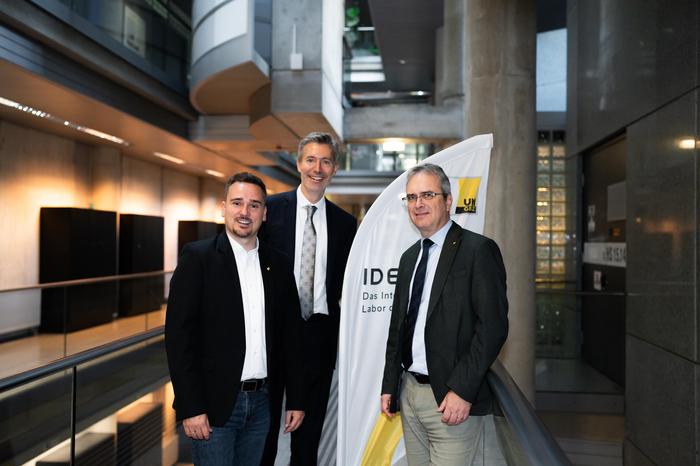On one side of the story are institutions like David Gem College in London. The British high school is currently aggressively promoting the use of artificial intelligence (AI). ChatGPT, probably the most famous AI chatbot, and its partners are acting as teachers, so to speak. “AI-assisted learning is designed to help our students learn at their own pace, rather than having to constantly focus on keeping up with the class,” the school says. The AI tools are preparing 20 students, aged 15 and up, for maths or biology exams over the course of a year.
On the other side of the story, there are some recent surveys that clearly focus on the risks that AI applications can pose. So you will According to research firm Arize AI The Fortune 500 companies in America tend to be critical of new technology. More than two-thirds of companies mentioned generative AI—AI tools that generate text, images, or video—in the context of potential risks in their most recent annual reports.
50,000 ChatGPT pages
At the Karl Franz University in Graz, people are convinced that using AI tools makes sense. As reported, “uniGPT” has been implemented. The chatbot was developed in collaboration between the IT department and the AI research center IDea_Lab and was made available to all employees at the beginning of May. Among Austrian universities, KF sees itself as a pioneer in this regard.
But how is the technology being received nearly four months later? People at the university are very happy. “Usage figures” are cited that “confirm the successful start of uniGPT.”
uniGPT in use
© UniGPT
In the first few weeks, “more than 1,000 employees used the tool. In total, more than 28 million so-called ‘tokens’ were entered and processed in uniGPT, which corresponds to around 21 million words,” says Markus Wallenbock, vice-chancellor responsible for human resources and digitalization. “If you were to print out all the texts entered by employees and generated by the chatbot, it would amount to more than 50,000 pages.”
What is the tool used for? “Drafting emails, summarizing documents, planning events or developing project plans,” the university cites as examples. In parallel with the chatbot, training materials are available for university staff. Ethical questions surrounding the topic of artificial intelligence are also discussed there.

Michael Friedl (IDEa_Lab), Vice-Rector Markus Wallenbock, Rector Peter Riedler
© Idea Lab / Alsnaj
Graz AI Conference
The university doesn’t just want to make its focus on AI visible internally. With the conference set to take place for the first time on October 9 and 10, Technology Impact Summit (TIS) The aim is to “promote the positive translation of technological innovations into society, business and research,” says Markus Wallenbock. In addition, “the technological position of Graz should become even more visible.” The event is organized in cooperation with the Graz University of Technology, FH Joanneum and Joanneum Research. The title is decidedly optimistic: “Artificial Intelligence: Shaping the Future Now!”

“Certified tv guru. Reader. Professional writer. Avid introvert. Extreme pop culture buff.”







More Stories
Samsung Quantum Dot TV: Art meets technology
Pitch: €56m for energy startup Reverion
Plastoplan: Plastics for Energy Transition